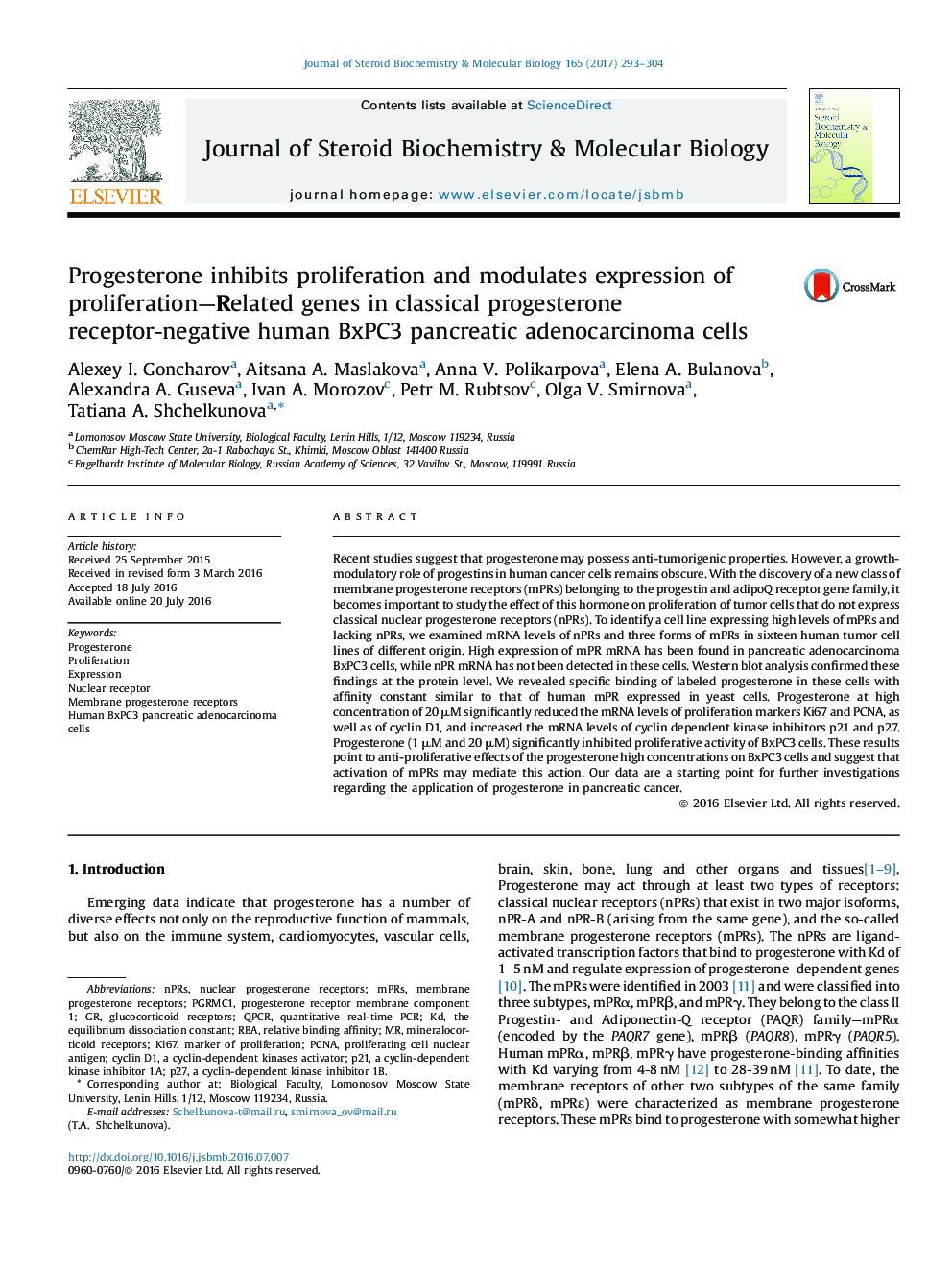| کد مقاله | کد نشریه | سال انتشار | مقاله انگلیسی | نسخه تمام متن |
|---|---|---|---|---|
| 5513141 | 1540982 | 2017 | 12 صفحه PDF | دانلود رایگان |

• In human pancreatic adenocarcinoma BxPC3 cells, high mPR mRNA levels and the absence of nPR mRNA have been detected. Western blot analysis showed the presence of the mPRα, mPRβ, mPRγ proteins and the absence of nPR protein in BxPC3 cells.
• In BxPC3 cells, progesterone at high concentration of 20 mM significantly reduced the mRNA levels of proliferation markers Ki67 and PCNA, as well as of cyclin D1.
• In BxPC3 cells, progesterone at high concentration of 20 μM significantly increased the mRNA levels of cyclin dependent kinase inhibitors p21 and p27.
• Progesterone at 1 μM and 20 μM concentrations inhibited proliferative activity of BxPC3 cells.
Recent studies suggest that progesterone may possess anti-tumorigenic properties. However, a growth-modulatory role of progestins in human cancer cells remains obscure. With the discovery of a new class of membrane progesterone receptors (mPRs) belonging to the progestin and adipoQ receptor gene family, it becomes important to study the effect of this hormone on proliferation of tumor cells that do not express classical nuclear progesterone receptors (nPRs). To identify a cell line expressing high levels of mPRs and lacking nPRs, we examined mRNA levels of nPRs and three forms of mPRs in sixteen human tumor cell lines of different origin. High expression of mPR mRNA has been found in pancreatic adenocarcinoma BxPC3 cells, while nPR mRNA has not been detected in these cells. Western blot analysis confirmed these findings at the protein level. We revealed specific binding of labeled progesterone in these cells with affinity constant similar to that of human mPR expressed in yeast cells. Progesterone at high concentration of 20 μM significantly reduced the mRNA levels of proliferation markers Ki67 and PCNA, as well as of cyclin D1, and increased the mRNA levels of cyclin dependent kinase inhibitors p21 and p27. Progesterone (1 μM and 20 μM) significantly inhibited proliferative activity of BxPC3 cells. These results point to anti-proliferative effects of the progesterone high concentrations on BxPC3 cells and suggest that activation of mPRs may mediate this action. Our data are a starting point for further investigations regarding the application of progesterone in pancreatic cancer.
Journal: The Journal of Steroid Biochemistry and Molecular Biology - Volume 165, Part B, January 2017, Pages 293–304